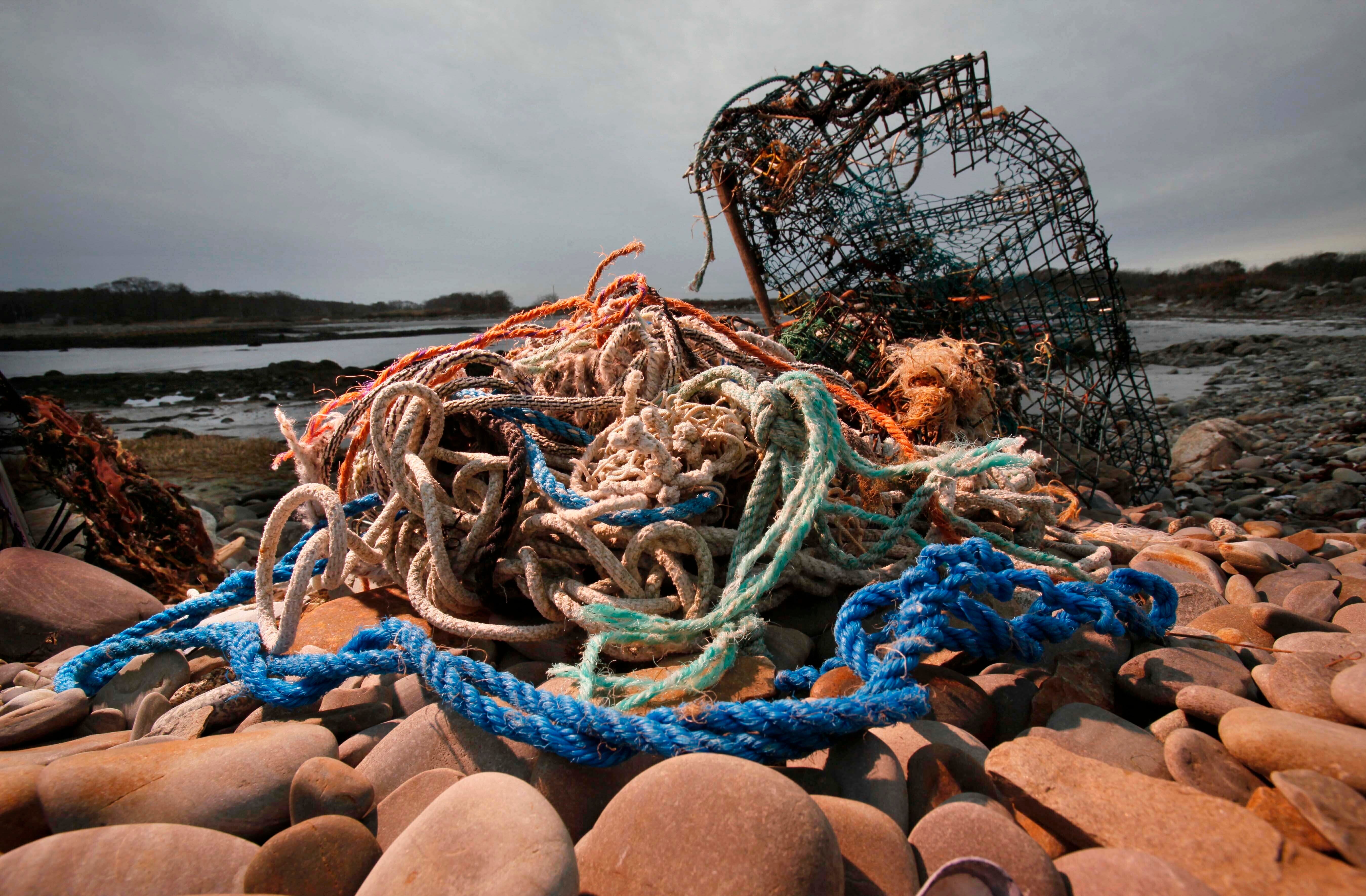Sustainability group pulls lobster certification over whales
An international nonprofit organization that sets sustainability standards for commercial fishing management has suspended a certification it awarded Maine’s lobster industry over concerns about harm to whales

Your support helps us to tell the story
From reproductive rights to climate change to Big Tech, The Independent is on the ground when the story is developing. Whether it's investigating the financials of Elon Musk's pro-Trump PAC or producing our latest documentary, 'The A Word', which shines a light on the American women fighting for reproductive rights, we know how important it is to parse out the facts from the messaging.
At such a critical moment in US history, we need reporters on the ground. Your donation allows us to keep sending journalists to speak to both sides of the story.
The Independent is trusted by Americans across the entire political spectrum. And unlike many other quality news outlets, we choose not to lock Americans out of our reporting and analysis with paywalls. We believe quality journalism should be available to everyone, paid for by those who can afford it.
Your support makes all the difference.An international nonprofit organization that sets sustainability standards for commercial fishing management has suspended a certification it awarded Maine's lobster industry over concerns about harm to whales.
Representatives for Marine Stewardship Council, which is based in London, said Wednesday that the suspension of the Gulf of Maine lobster fishery's certificate will go into effect on Dec. 15.
The danger North Atlantic right whales face from entanglement in fishing gear is a “serious and tragic situation" of "grave concern to all those involved in the fishing industry”, the organizaion said in a statement.
MSC's decision to take away its certification from the U.S. lobster fishery is the second time a sustainability organization has downgraded the industry's status this year.
Seafood Watch, based at Monterey Bay Aquarium in California, said in a report in late summer that it has added the American and Canadian lobster fisheries to its “red list” of species to avoid over concerns about risks to whales.
Some retailers removed lobster from their inventory after Seafood Watch's decision, and the industry could suffer more repercussions from MSC's move. MSC runs the largest seafood certification program in the world, and its logo, a blue and white fish, features prominently at many seafood counters.
A third-party assessor that monitors fisheries' conformance with MSC standards conducted an audit of the Gulf of Maine lobster fishery in September and found the fishing industry out of compliance, MSC said in a statement.
The auditor found the fishery out of compliance because of a federal court decision that said the rules governing the industry don't satisfy the Endangered Species Act or the Maine Mammal Protection Act, the organization said.
“To meet the requirements of the MSC Fisheries Standard, fisheries must comply with all relevant laws,” the MSC statement said.
Right whales number about 340 and their population is falling. They are vulnerable to entanglement in fishing gear and collisions with large ships.
The whales give birth off Florida and Georgia and come north to the waters off New England and Canada to feed. Once abundant, they were decimated during the commercial whaling era generations ago. More recently, warming oceans have emerged as a threat to the species, as scientists have said that has led the the animals to stray from protected areas in search of food.
The U.S. lobster fishery is based mostly in New England and is one of the most lucrative fishing industries in the country, valued at more than $700 million at the docks in Maine alone last year.
The Maine Lobstermen's Association feels the MSC decertification is the “direct result of the federal government's overreach and its misuse of science in overestimating risk from the Maine lobster fishery,” MLA Executive Director Patrice McCarron said Wednesday.
The lobster fishing group has an active lawsuit against the federal government over lobster fishing rules.
The MLA "is working to hold the federal government accountable through our lawsuit and force them to revise their plan so that it actually protects whales without leaving Maine’s historic lobster fishery in ruins and inflicting unnecessary economic harm on our state and thousands of working families," McCarron said.
The whales are also a major focus of conservation organizations. Some U.S. fisheries, including the lobster industry, “are taking place in seasonal hotspots where North Atlantic right whales are known to be found, and they are using excessive gear, which creates an unacceptable, illegal risk of entanglement,” said Gib Brogan, a fisheries campaign manager at nonprofit conservation organization Oceana.